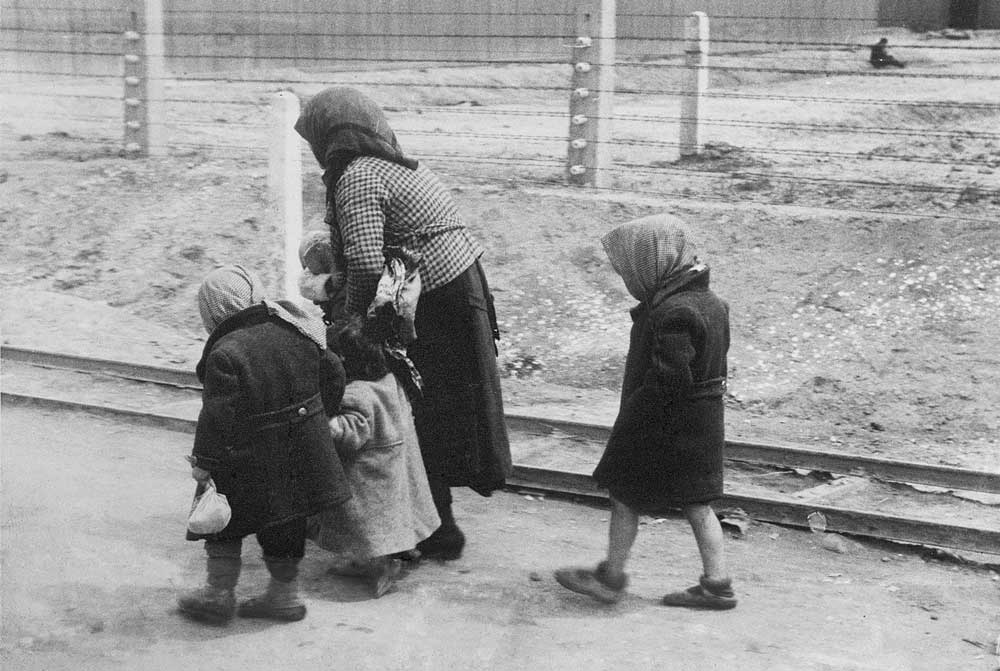Continental Shame | History Today - 5 minutes read

One might wonder why we need another book on the Holocaust. As Dan Stone points out, ‘the historiography of the Holocaust has been unimaginably large’. But this historiography is still responding to new developments and research. Stone’s new book is as up-to-date an overview as you are likely to find. At the same time, he presents a strong argument that the Holocaust should be understood as the result of ideological beliefs – beliefs shaped by a fascist identification of modernity’s ‘rootlessness’ and ‘cosmopolitanism’ as a symptom of Jewish ‘domination’.
Stone emphasises the basic fact that it was the Nazis who planned and executed the Holocaust. He stresses the central role of the SS in the murder of the Jews, but also points to the killing sprees carried out by the Ordnungspolizei and the participation of the Wehrmacht. Reading his book, one becomes aware how the Holocaust was organised with the full knowledge and involvement of the German ministerial bureaucracy. But Stone goes to considerable lengths to demonstrate that the murder of the Jews was achieved in collaboration with other countries: ‘The Holocaust was a continent-wide crime with many perpetrators, not just Germans.’
Without the support of countries such as France, Slovakia, Greece, Hungary and Romania, the Holocaust would not have happened in the way it did. The Germans, we read, relied heavily on local assistance in deporting the 56,000 Jews of Salonika. Stone exposes myths: while Bulgaria might like to remember how it refused to hand over its Jews to the Nazis, the truth is it was Bulgarian policemen and other administrators who oversaw the rounding up and deportation of Macedonian Jews to Treblinka death camp. Croatia, we learn, ran its own extermination camp at Jasenovac. Romania deported many Jews on its own initiative to Transnistria in the autumn of 1941, dumping them there in makeshift camps and leaving them to fend for themselves – in pigsties, for instance – and to die in their tens of thousands.
Many European countries, also infected by ethnic nationalism, shared the Nazis’ hatred of Jews and, during the Second World War, took the opportunity to remove them alongside other groups they deemed undesirable. But, as Stone also shows, the policy towards Jews, and towards collaboration with the Nazis in deporting them, was not always consistent. Vichy France under Pétain resisted Nazi pressure to deport Jews who were French citizens; yet Vichy had actively participated in rounding up stateless Jews. Hungary under Miklós Horthy, despite sending Jews to be slaughtered at Kamenets-Podolski in August 1941, resisted Nazi demands to surrender its Jews until the Nazi invasion in March 1944.
The Holocaust is thus, as Stone makes abundantly clear, European history, and should be understood as such. Even neutral and Allied countries did not cover themselves in glory. Under pressure from the German Foreign Office to ‘repatriate’ Jews, Salazar’s government in Portugal vacillated: had it not, Salonika’s Jews might have survived. After the war, Britain’s restrictions on Jewish entry to Palestine brought frustration, anger and despair to Jews in Displaced Persons camps, who had survived the Holocaust only to endure ‘their continued incarceration’. Ernest Bevin notoriously remarked that the ‘Jew should not push to the head of the queue’. Stone’s chapter on the postwar fate of Jewish victims illuminates with great sympathy and insight a history of continuing suffering and prejudice.
Stone shows that we need to get away from the idea that the Holocaust happened just at Auschwitz. He describes the killing process at Auschwitz in harrowing detail, but we also learn much about the ‘Holocaust by bullets’ – the killing of Jews by the Einsatzgruppen (mobile death squads) following the Nazi invasion of the Soviet Union – and the atrocities committed in the camps associated with Operation Reinhard. Stone explores the little-known history of the myriad, usually small, Nazi subcamps that sprang up in the final years of the war. That Jews were used at these subcamps as labour does not in any way contradict the Nazis’ genocidal intentions: they still died in droves. In the final months of the war, Jews were shunted around, dying in huge numbers. It was murder on the move.
A final chapter on Holocaust memory makes for gloomy reading. Stone expresses concern about the ‘beautifying of the Holocaust in the western world’ through the ‘lauding of survivors and their rescuers’. He is sceptical of the desire to learn from the Holocaust: what can it teach us, Stone asks, ‘except that deep passions that owe nothing to rational politics can move human beings to do terrible things’? He points to the way in which the Holocaust is denied and its memory manipulated for all manner of ends. At the same time, Stone worries that the International Holocaust Remembrance Alliance’s admittedly vague working definition of antisemitism is being used to suppress pro-Palestinian voices. He introduces the reader to recent debates in Germany around comparing the Holocaust with colonialism (rather than seeing it as ‘unique’), or Israel’s treatment of Palestinians with South African Apartheid. To describe those who resist such comparisons as ‘conservative’ and those who encourage them as ‘progressive’ is, however, too schematic. Contrary to what Stone claims, moreover, it is not ‘forbidden’ to criticise Israel in Germany: it happens all the time.
This is an outstanding book: well written, deeply felt, always perceptive and exhibiting considerable knowledge of decades of Holocaust scholarship. It will become the standard work in English on the subject for some time to come.
The Holocaust: An Unfinished History
Dan Stone
Pelican 464pp £22
Buy from bookshop.org (affiliate link)
Bill Niven is Professor in Contemporary German History at Nottingham Trent University. He is author of Hitler and Film: The Führer’s Hidden Passion (Yale University Press, 2018).
Source: History Today Feed